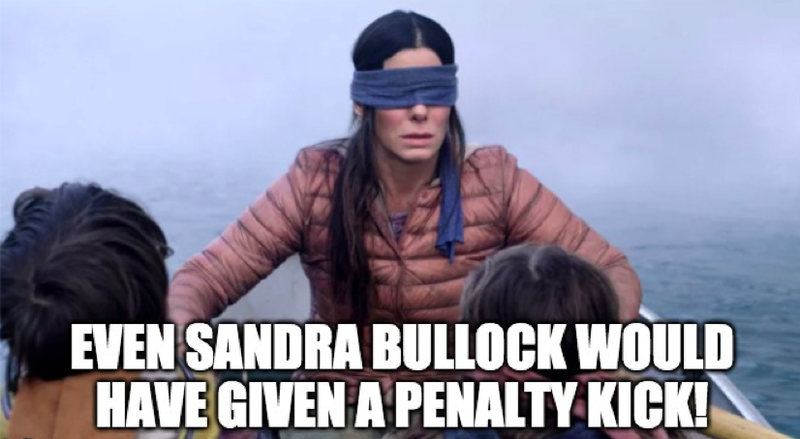
There is not a lot of love for the Video Assistant Referee at the moment with almost every weekend of football dominated more by the ongoing debate around its performance than the results on the pitch. To be quite frank, I'm getting pretty bored of the whole thing. Prior to the introduction of VAR, the media used to spend a fair amount of time criticising referees performances and now thanks to a technological advancement that was meant to improve decision making they can spend pretty much their entire pre and post-match periods bad-mouthing the officials.
Why is it that this only appears to be a major problem in football and how can football learn from the many other sports around the world that appear to have come to terms with video-assisted decision making?
The below is a list of changes I think VAR could make based on what I've seen in other sports...
The Referee's Call
In my opinion, the point of technology like VAR should be to support the onfield officials in their decision making not replace them.
In cricket decisions surrounding LBW can be referred to the Decision Review System (the equivalent of VAR) which ultimately ends with a ball-tracking model being built by a computer system. The system will predict where the ball pitched (landed), where it struck the batsmen and whether it would go onto hit the stumps. The technology known as Hawkeye has had its critics over the years but in general, it is recognised as being fairly accurate in predicting the path of the ball. However, given that the technology can not be 100% accurate there is a mechanism within DRS that allows for the onfield official's original decision to add weight to the final outcome of the video review - it is known as "umpires call".
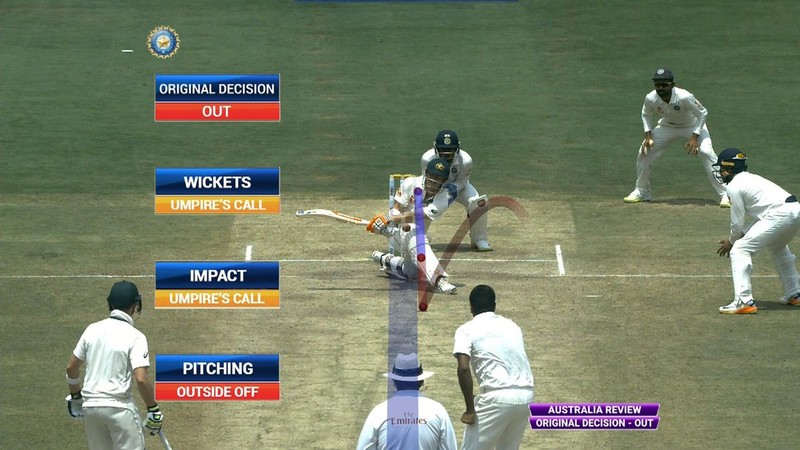
Without going into too much detail about the LBW laws which are VERY long and VERY complex the above image represents what is effectively a line call in regards whether the ball would have gone on to hit its target. The umpires original decision was to give this batsman out i.e. to the naked eye he thought the ball would hit the stumps (the target). Hawkeye agreed with this but only just! Had the umpire have come to the opposite conclusion then the evidence that Hawkeye produced would not have been enough to overturn the umpire's onfield decision - it's a simple way of both empowering human beings to continue to make decisions and recognising that the technology itself can never be 100% accurate.
Why can't football adopt something similar? In the Premier League this weekend we saw Sheffield United have a goal ruled out because of this very marginal offside decision.
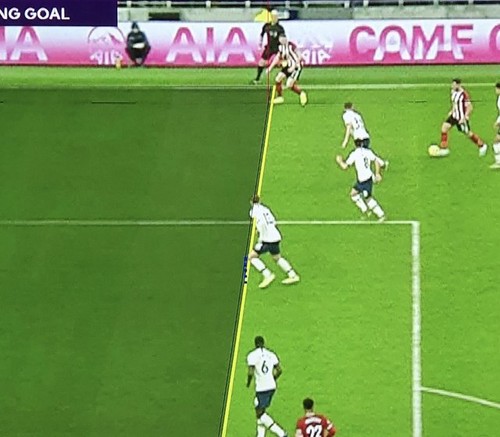
There is a school of thought that says this shouldn't really be an issue - either you're behind the line and onside or beyond it and therefore offside. My concern though would be that I don't believe the technology can be 100% accurate in showing you an offside call that tight. You have to remember that the player is only offside at the moment the ball is passed and unless the technology is able to zoom in on the player passing the ball's foot and calculate to the micro-second exactly when contact with the ball was made (which it can't) then you have to assume a certain level of ambiguity in the VAR system. That level of uncertainty should be filled with whatever the onfield officials have decided in the first instance. In other words, where the technology cannot give you absolute certainty, it can't be used to overrule the original decision and instead should it should stay with "the referee's call".
An Open & Honest Peer Review System
One thing that I find incredibly annoying about VAR is the lack of communication in regards to how a decision has been reached. The controversy in Sunday's top of the league clash between Liverpool and Man City was a perfect example. We were left to wait for 10-15mins for a decree from the Premier League that stated the ball striking TAA's arms wasn't a deliberate act and therefore didn't constitute a penalty. Forget for a minute the fact that the FA and Premier League are now struggling to interpret their own rules and instead ask the question why the audience watching at home and at the ground as well as the players and coaches on either side aren't made aware of how the decision was reached.
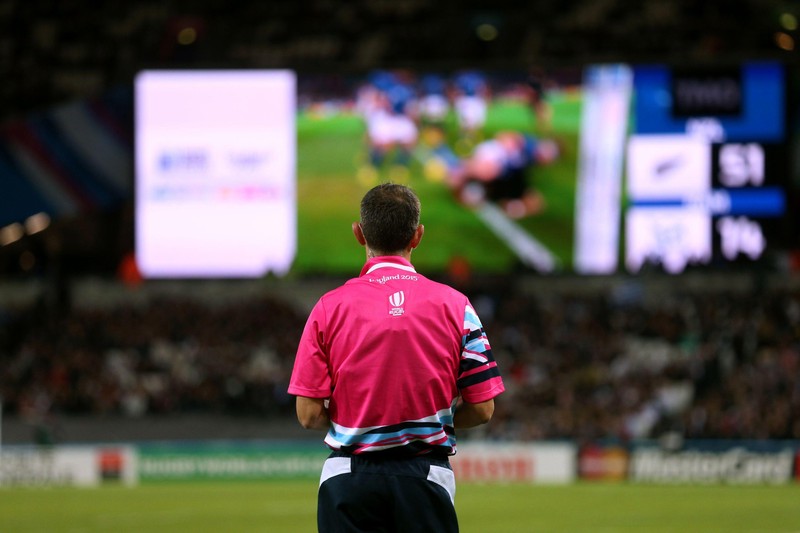
In most of the other sports that I regularly watch the decision-making process when video technology is brought into play is shared with all those interested parties above and perhaps most importantly with the on-field officials! We never hear any dialogue between the VAR team and the on-field officials and the referee isn't able to see a replay of the action. The kind of dialogue, consensus-building and peer review system that we see happening in Rugby Union with the TMO would surely help the referees to make better decisions and for everyone else involved to understand how and why they came to that decision.
Player & Coach Challenges
Tennis, Cricket and NFL to mention just a few sports all have the ability for players or coaches to challenge an official's initial decision if they feel they have been hard done by so why not allow footballers and/or their coaches the chance to do the same? When you consider the fact that football has a bigger problem with player/coach descent than probably any other major sport then it seems logical to bring this feature in to help curb the issue.
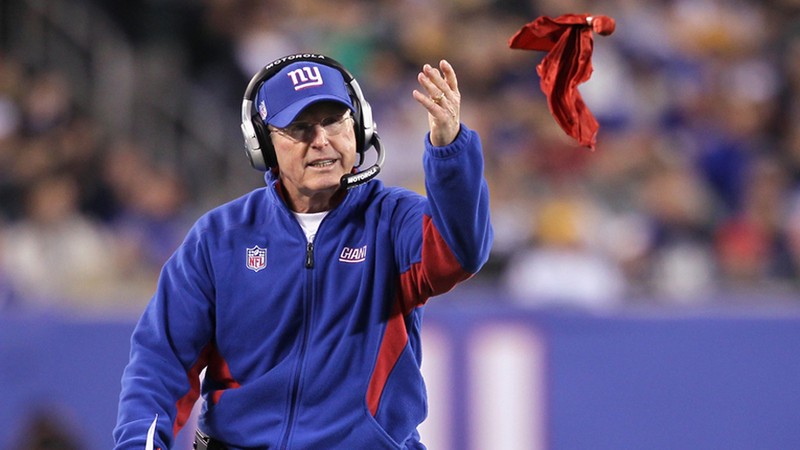
Being able to use DRS in cricket to challenge the umpire's decision has become as much a part of the skill of a good captain as any other part of the tactics involved so why not challenge some of the Premier League's coached who always have an opinion on the ref's performance to put their money where their mouth is!
Such a system would need to be thoroughly thought through with consideration given to what decisions can be challenged, how long after the incident can a challenge be made and how many challenges does each team get in the space of a match. As well as potentially improving decision-making I think such a step would also add an element of drama and intrigue to VAR with fans potentially playing their part in influencing whether their coach should review a specific decision.
Comments